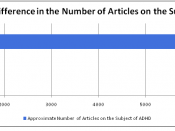Re "Boom in Ritalin Sales Raises Ethical Issues" (Health page, May 15): The stimulant Ritalin treats the needs of health professionals, parents and teachers rather than the needs of children
You report that experts say "the drug helps anyone to concentrate, whether or not they have a neurological problem." Yet you quote them as agreeing that there is a bona fide neurological syndrome, attention deficit disorder. The experts also contend that they can determine who does and who does not have this "disease."
In fact, there is no medical, neurological or psychiatric justification for the A.D.D. diagnosis. The key "symptoms" include such behavior as "often fidgets with hands or feet or squirms in seat," "often leaves seat in classroom or in other situations in which remaining seated is expected" and "often has difficulty awaiting turn."
Many factors could lead a child to behave in this manner, including a spirited, creative nature that defies conformity, inconsistent discipline or lack of unconditional love, boring and oversized classrooms, an overstressed teacher, lack of teacher attention to individual educational needs, anxiety due to abuse or neglect at home or elsewhere, conflict and communication problems in the family and misguided educational and behavioral expectations for the child.
In my own clinical experience, many such children are energetic, creative and independent youngsters struggling within the constraints of an inattentive, conflicted or stressed adult environment. Thus we end up drugging our best and our brightest.
Attention deficit disorder does not reflect children's attention deficits but our lack of attention to their needs.


